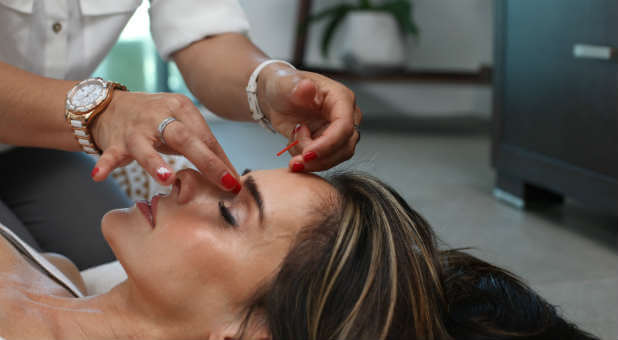Have you wondered if as a Christian woman it is OK to practice self-care?
I don’t know about you, but when I see these buzzwords and bandwagons, I grow a little cautious. And here’s why. I don’t follow a crowd.
Not to overspiritualize something, but Jesus did say that the road to life was narrow and not very populated.
So, not only is it narrow, but you won’t even run into a traffic jam on this narrow road.
So, whenever I see a large crowd of people moving in one direction, I tend to want to move in just the opposite direction. And I see a lot of people rushing after the idea of self-care.
Even Christian people.
I have thought a lot on this topic of self-care.
I’ll be honest and say, I haven’t read very much (hardly at all) about what my favorite writers have to say about this, mainly because I wanted to hear the voice of the Holy Spirit speaking to me what His thoughts are.
And since praying and pondering what has come to my heart, I have two concerns about what is termed self-care.
Is Self-Care Biblical for Christian Women?
When you look at what secular society terms “self-care,” it is very easy to get drawn in, because websites that promote self-care encourage women to take care of their health, laugh and be in the moment.
All good things that everyone should do.
But the further down the list we go, we begin read about yoga, meditation and this very deceptive line that I found on the website PsychCentral, “Good self-care is key to improved mood and reduced anxiety. It’s also key to a good relationship with oneself and others.”
And here are where two red flags pop up for me.
1. Self-care is self-focused.
The secular concept of self-care is completely void of God—and thus secular. And this is the foundation for my concern for Christian women engaging in self-care.
We are responsible for our mood, our anxiety levels. And thus, we need to do those things for ourselves that will improve our mood and reduce our stress and anxiety.
But what does Scripture say?
Scripture tells us that true and lasting joy is only found in the Lord. True joy is a fruit of the Holy Spirit in our lives. You can read my post 25 Verses that Command Us to Have Joy to see just how often the Bible talks about this.
Throughout Scripture, we’re commanded to make God our joy.
Not a good mood.
Not self.
And when our lives are centered on God’s Word, and when we’re living in right standing with Scripture, joy is a natural outcome.
When we’re stressed-out and dealing with anxiety, Jesus tells us to come to Him. “Come to Me, all you who labor and are heavy laden, and I will give you rest” (Matt. 11:28).
Peace will not be found in yoga, meditation, mindfulness, becoming centered and balanced, or any of these other secular activities.
True, lasting peace that surpasses all understanding and that guards our hearts and minds in Christ Jesus is only found in Christ Jesus.
2. Self-Care promotes New-Age practices.
When we fall into the first trap of trying to find joy and peace in ourselves, and apart from Christ, we’ll naturally fall into this second trap.
And that is because they are coupled together.
Finding joy and peace within ourselves requires buying into the New-Age belief that is humanistic at its center. It places self as the deity in our lives.
It is self-exalting.
Self-care recommends yoga and meditation; mindfulness and being centered and balanced. It recommends speaking affirmations.
These are all New Age-based buzz words that come from humanistic and New-Age beliefs that place man at the center and leave God entirely out of the equation.
Yoga, meditation, mindfulness and centeredness all come from Eastern religions. You can read my post here on how biblical meditation differs from Eastern meditation.
Affirmations such as “You are amazing. You are loved. You are wonderful. You are worthy” are not empty words.
These types of affirmations are full of self-exalting, humanistic values that completely contradict God’s Word.
Instead, the Bible tells us that we are to meditate on His Word day and night. The Hebrew word for “meditate” literally means “to mutter under your breath.”
Speaking.
Do you see how this secular view of self-care flies right in the face of how Christians are supposed to live when their lives are founded upon the principles of God’s Word?
So then, how is a Christian woman supposed to take care of herself in a biblical way?
That is what I want to explore with you in some upcoming posts. {eoa}
Rosilind Jukic, a Pacific Northwest native, is a missionary living in Croatia and married to her hero. Together, they live with their two active boys in the country, where she enjoys fruity candles and a hot cup of herbal tea on a blustery fall evening. She holds an associate degree in practical theology and is passionate about discipling and encouraging women. Her passion for writing led her to author a number of books. She is the author of “A Little R & R,” where she encourages women to find contentment in what God created them to be. She can also be found at these other places on a regular basis. You may follow her on Facebook, Twitter, Pinterest and Google +.
This article originally appeared at rosilindjukic.com.














































